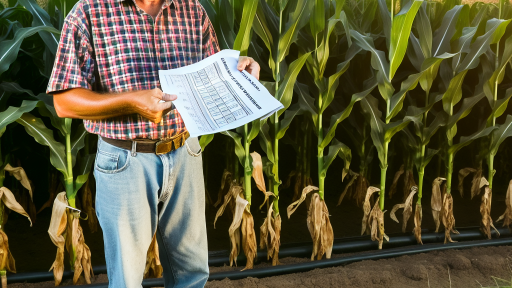Introduction to Food Safety Standards
Food safety standards play a crucial role in the farm-to-table supply chain.
They ensure that food products are safe for consumption.
These standards help prevent foodborne illnesses that can arise from contamination.
Moreover, they foster consumer trust in the food system.
As a result, food safety standards are essential for protecting public health.
Importance of Food Safety Standards
Food safety standards establish guidelines for handling and processing food.
They provide a framework for farms, processors, and retailers to follow.
Compliance with these standards enhances food quality and safety.
Additionally, it reduces the risk of product recalls and reputational damage.
Effective food safety measures can boost overall efficiency in supply chains.
Connecting Farmers to Consumers
Food safety standards help bridge the gap between producers and consumers.
They ensure that consumers receive fresh, high-quality products.
Common standards include proper labeling and traceability of food items.
This transparency builds consumer confidence in their food sources.
Hence, adherence to food safety standards is critical for market success.
Transform Your Agribusiness
Unlock your farm's potential with expert advice tailored to your needs. Get actionable steps that drive real results.
Get StartedRegulatory Compliance and Risk Management
Meeting food safety standards allows businesses to comply with regulations.
This compliance protects companies from legal liabilities.
Moreover, it helps mitigate risks associated with food safety incidents.
By following safety standards, businesses reduce their chances of lawsuits.
Thus, food safety standards serve as a crucial risk management tool.
Overview of Key Food Safety Standards
Introduction to Food Safety Standards
Food safety standards play a vital role in agriculture and food service sectors.
They help protect consumers from foodborne illnesses.
These standards ensure consistent quality and safety in food products.
Key Standards for Agriculture
The Hazard Analysis and Critical Control Points (HACCP) is widely recognized.
It focuses on identifying and controlling potential hazards in food production.
Furthermore, the USDA Organic Certification promotes organic farming practices.
This certification guarantees that products meet specific organic standards.
Additionally, the Global Food Safety Initiative (GFSI) provides a framework.
It enhances food safety management across the supply chain.
Key Standards for Food Service
Food service operations follow the ServSafe guidelines from the National Restaurant Association.
These guidelines cover food handling, preparation, and storage techniques.
Moreover, local health department regulations ensure compliance with safety practices.
They help maintain cleanliness in kitchens and dining areas.
The Food and Drug Administration (FDA) also offers the Food Code.
This comprehensive resource addresses food service operations nationwide.
The Role of Third-Party Audits
Third-party audits assess compliance with food safety standards.
These audits offer an unbiased review of food safety practices.
They also help businesses identify areas for improvement.
Consequently, companies can maintain consumer trust and confidence.
Showcase Your Farming Business
Publish your professional farming services profile on our blog for a one-time fee of $200 and reach a dedicated audience of farmers and agribusiness owners.
Publish Your ProfileBenefits of Adhering to Food Safety Standards
Adhering to food safety standards leads to reduced foodborne illness outbreaks.
It also protects companies from costly recalls and lawsuits.
Moreover, these standards help enhance the reputation of businesses.
They demonstrate a commitment to quality and consumer safety.
Therefore, implementing food safety standards benefits everyone in the supply chain.
Enhanced Consumer Trust
Reassurance through Standards
Food safety standards play a vital role in consumer confidence.
These standards ensure that food products meet specified quality and safety requirements.
When customers see certified products, they feel reassured about their choices.
This reassurance translates into consistent purchases and loyalty to brands.
Importance of Transparency
Transparency in the farm-to-table supply chain builds trust.
Food safety standards require clear labeling and information sharing.
This meaningful communication helps consumers make informed choices.
As a result, they can feel secure about what they are consuming.
Empowerment of Consumers
Standards empower consumers with knowledge about food sources.
They often lead to better understanding regarding the origin of products.
Consequently, consumers feel more connected to their food choices.
This connection fosters a sense of responsibility towards shared food safety.
Positive Brand Reputation
Brand reputation greatly benefits from adherence to food safety standards.
Brands that prioritize safety often build stronger customer relationships.
Consumers are likely to recommend trusted brands to others.
This advocacy can lead to increased market share over time.
Encouragement of Sustainable Practices
Standards often align with sustainable farming practices.
They promote responsible use of resources and environmentally-friendly methods.
This connection appeals to environmentally-conscious consumers.
Ultimately, sustainable practices enhance consumer trust further.
Find Out More: Implementing Effective Food Safety Practices on Your Farm
Impact of Food Safety Standards on Reducing Foodborne Illnesses and Health Risks
Understanding Foodborne Illnesses
Foodborne illnesses pose significant health risks worldwide.
Many pathogens can contaminate food and cause severe health issues.
Common sources include raw meats, unwashed vegetables, and improperly handled dairy products.
Awareness of these risks is crucial for consumers and producers alike.
The Role of Food Safety Standards
Food safety standards establish guidelines for safe food production.
They require proper handling, cooking, and storage of food items.
Complying with these standards significantly reduces contamination risks.
Consequently, foodborne illness rates decrease over time.
Benefits of Implementing Standards
Implementing food safety standards enhances consumer trust.
When consumers trust their food sources, they feel safer eating out.
Moreover, businesses benefit from fewer health-related incidents.
This can lead to lower insurance costs and fewer legal issues.
Real-World Impact
Many jurisdictions that enforce food safety regulations see positive outcomes.
For example, in Washington state, strict standards led to a 30% drop in foodborne illnesses.
Showcase Your Farming Business
Publish your professional farming services profile on our blog for a one-time fee of $200 and reach a dedicated audience of farmers and agribusiness owners.
Publish Your ProfileSimilar positive trends have been reported globally.
These improvements highlight the need for rigorous food safety practices.
Education and Training
Ongoing education and training are essential for maintaining food safety standards.
Food handlers must understand the importance of hygiene and proper practices.
Periodic workshops can help reinforce these critical skills.
Additionally, accessing resources online supports continuous learning.
Transforming the Food Industry
Food safety standards transform farm-to-table supply chains.
They reduce foodborne illnesses significantly and improve public health.
Moreover, these standards create a safer food environment for all.
Thus, their implementation is vital for any food-related business.
Gain More Insights: Agricultural Zoning: Best Practices for Farmers
The Role of Traceability in Food Safety Standards
Enhancing Supply Chain Transparency
Traceability forms a critical component of food safety standards.
It allows consumers to track the source of their food products.
This transparency fosters greater consumer trust and confidence.
When consumers understand where their food comes from, they feel safer.
Moreover, traceability reduces the risk of foodborne illnesses.
By identifying the origin of ingredients, unsafe products can be quickly removed.
Furthermore, transparency in sourcing supports ethical farming practices.
This practice encourages businesses to maintain high safety standards.
Benefits of Implementing Traceability
Implementing traceability yields numerous benefits for supply chains.
For instance, it aids in quick response during food recalls.
In the event of contamination, affected products can be swiftly identified.
This minimizes public health risks significantly.
Additionally, traceability enhances operational efficiency.
Organizations can pinpoint inefficiencies and improve their practices.
Consequently, this leads to reduced waste and lower costs.
Strengthening Consumer Protection
Traceability significantly strengthens consumer protection measures.
It empowers consumers with information regarding product origins.
This knowledge promotes informed choices about food purchases.
Consumers increasingly demand transparency in food sourcing.
Meeting this demand can improve a company’s market position.
Moreover, ensuring high safety standards bolsters brand reputation.
Trustworthy brands cultivate lasting relationships with their customers.
This relationship enhances customer loyalty and repeat business.
See Related Content: How Tariff Changes Can Affect Your Farming Business

Economic Benefits for Farmers and Producers through Adherence to Food Safety Standards
Increased Market Access
Complying with food safety standards opens new markets for farmers.
Retailers often require certifications to stock products.
This requirement includes local farmers’ markets and restaurants.
As a result, producers can expand their customer base.
Enhanced Consumer Trust
Food safety standards foster consumer confidence in products.
Showcase Your Farming Business
Publish your professional farming services profile on our blog for a one-time fee of $200 and reach a dedicated audience of farmers and agribusiness owners.
Publish Your ProfileConsumers are more likely to purchase items they trust.
This trust can lead to repeat business and positive word-of-mouth.
Furthermore, trust often translates into brand loyalty.
Reduction in Food Safety Incidents
Strict adherence to safety guidelines reduces the risk of foodborne illnesses.
Lower incidents protect both consumers and producers.
Insurance costs may decrease due to fewer claims related to safety issues.
In the long term, this leads to overall cost savings for producers.
Improved Operational Efficiency
Implementing food safety measures streamlines operations.
Efficient practices lead to reduced waste and better resource management.
This efficiency ultimately boosts profit margins.
Additionally, effective training ensures all employees understand protocols.
Access to Financial Assistance
Financial institutions may offer better loan terms to compliant producers.
Grants and subsidies often favor those who meet safety standards.
Such financial resources can help expand operations or modernize equipment.
Thus, adherence to standards pays off in more ways than one.
See Related Content: Exploring the Effects of Farm-To-Table Policies on Crop Production
Collaboration and Compliance
Engaging Stakeholders
Engaging stakeholders is essential for maintaining food safety standards.
Farmers, suppliers, and retailers must collaborate effectively.
Each party brings unique insights to the table.
Regular meetings can enhance communication and understanding.
Additionally, involving health inspectors fosters transparency.
Establishing Clear Guidelines
Clear guidelines are crucial for farm-to-table supply chains.
Every stakeholder should understand their responsibilities.
Documenting procedures helps in maintaining consistency.
Moreover, accessible resources ensure everyone stays informed.
Implementing Training Programs
Training programs enhance understanding of food safety standards.
Stakeholders should attend workshops to improve their skills.
Furthermore, online courses can provide flexible learning options.
Regular refresher courses can keep knowledge current.
Utilizing Technology Solutions
Technology plays a pivotal role in ensuring compliance.
Software applications can track food safety practices.
Data analytics can identify potential risks in the supply chain.
Furthermore, mobile apps can streamline reporting processes.
Promoting a Culture of Safety
Creating a culture of safety is vital for compliance.
All stakeholders should prioritize food safety in their operations.
Recognition programs can motivate stakeholders to excel.
Sharing success stories strengthens community commitment.
Reviewing and Updating Standards
Regular reviews of standards ensure they remain relevant.
Stakeholders must adapt to new challenges and regulations.
Feedback from participants can guide improvements.
Showcase Your Farming Business
Publish your professional farming services profile on our blog for a one-time fee of $200 and reach a dedicated audience of farmers and agribusiness owners.
Publish Your ProfileContinuous evaluation promotes a proactive approach to safety.
Future Trends in Food Safety Standards
Increased Regulations
Food safety standards are becoming increasingly stringent worldwide.
This trend aims to enhance public health and consumer trust.
Governments now require more detailed tracking and reporting from producers.
Consequently, farm-to-table practitioners must adapt to these changes.
Technological Advancements
Emerging technologies are revolutionizing food safety practices.
Innovations like blockchain enhance traceability throughout the supply chain.
These technologies help ensure transparency from farm to table.
Moreover, automated systems reduce the risk of human error.
Consumer Awareness and Demand
Heightened consumer awareness drives demand for safer food options.
As a result, producers must prioritize safety in their practices.
Shoppers increasingly seek local and organic products with safety certifications.
Therefore, compliance with food safety standards is more crucial than ever.
Impact of Climate Change
Climate change poses new challenges for food safety standards.
Extreme weather affects food production and safety protocols.
Farmers must adapt their practices to mitigate these impacts.
Otherwise, they risk not meeting evolving safety standards.
Global Collaboration
Collaboration among countries is growing in the food safety sphere.
International partnerships can enhance food safety standards globally.
This cooperation ensures that all countries can address foodborne illnesses effectively.
Consequently, farm-to-table suppliers need to be aware of global regulations.
Additional Resources
USDA Agri-Food Supply Chain Assessment: Program and Policy …




